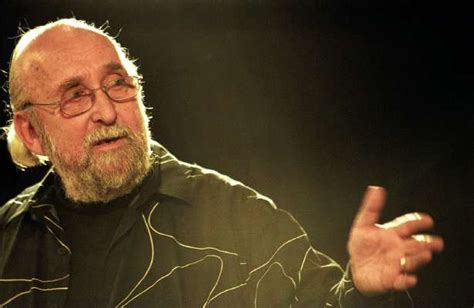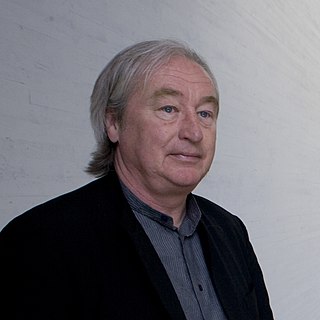A Quote by Mark Strand
And yet, in a culture like ours, which is given to material comforts, and addicted to forms of entertainment that offer immediate gratification, it is surprising that so much poetry is written.
Related Quotes
I'm saying that the domain of poetry includes both oral & written forms, that poetry goes back to a pre-literate situation & would survive a post-literate situation, that human speech is a near-endless source of poetic forms, that there has always been more oral than written poetry, & that we can no longer pretend to a knowledge of poetry if we deny its oral dimension.
We live in a society right now which is the last phase of the ecosystem in terms of the old entertainment value, or the old entertainment construction, which is we've gone down to this instant gratification, instant numbers, instant understanding, instant. But it's like the exact - it has perfected itself to the instant click, when, in a way, creativity originates as a much more complex beast. So we now have to reinvent a new canvas where we can indulge in it. And that's where the digital revolution creates a whole new ecosystem of entertainment.
There are three things that I'm addicted to when it comes to entertainment. In no particular order, One, I'm addicted to the cheer moment. 'Librarians' has plenty of them. Next, I feel that life is hard, and I want my entertainment fun, and 'Librarians' is fun as a Christmas party. And third, I like to be moved.
One of the interesting things about the history of poetry in the 16th, 17th, and 18th centuries is that people who read liked getting their information in rhyme just as much as in prose. The genre that we would think of as nonfiction often was written in verse in forms like the Georgic when people thought that one of the tasks of poetry was conveying arguments and information in a pleasant way.
If we hold tightly to anything given to us unwilling to allow it to be used as the Giver means it to be used we stunt the growth of the soul. What God gives us is not necessarily "ours" but only ours to offer back to him, ours to relinguish, ours to lose, ours to let go of, if we want to be our true selves. Many deaths must go into reaching our maturity in Christ, many letting goes.
Countries like ours are full of people who have all of the material comforts they desire, yet lead lives of quiet (and at times noisy) desperation, understanding nothing but the fact that there is a hole inside them and that however much food and drink they pour into it, however many motorcars and television sets they stuff it with, however many well-balanced children and loyal friends they parade around the edges of it. . . it aches!
Of all the art forms, poetry is the most economical. It is the one which is the most secret, which requires the least physical labor, the least material, and the one which can be done between shifts, in the hospital pantry, on the subway, and on scraps of surplus paper. ... poetry has been the major voice of poor, working class, and Colored women. A room of one's own may be a necessity for writing prose, but so are reams of paper, a typewriter, and plenty of time.
Side by side with the miseries of underdevelopment...we find ourselves up against a form of superdevelopment, equally inadmissable. This superdevelopment consists in an excessive availability of material goods for the benefit of certain social groups and makes people slaves of "possession" and immediate gratification, with no other horizon than the multiplication or continual replacement of the things already owned with others still better. This is the civilization of consumption, or "consumerism," which involves so much throwing away and waste.
I was lucky enough to have had great success early on in life; to have had all the things the material world can offer. And yet, I realized that what I had actually neglected was the more spiritual side of myself, which has always been there. But it's easy for us in our culture to become consumed in a sense by materialism. Now materialism is fine. We live in a material world. I'm not saying that beautiful things don't enhance our lives. But, in our culture, we're never happy.
I came to writing mysteries through poetry and still think that a well-constructed mystery is very much like a well-constructed sonnet. Both are artificial forms. Both start off in one direction and then, with a twist of the concluding couplet/surprising ending, both reveal that they were headed somewhere different all the time.







































